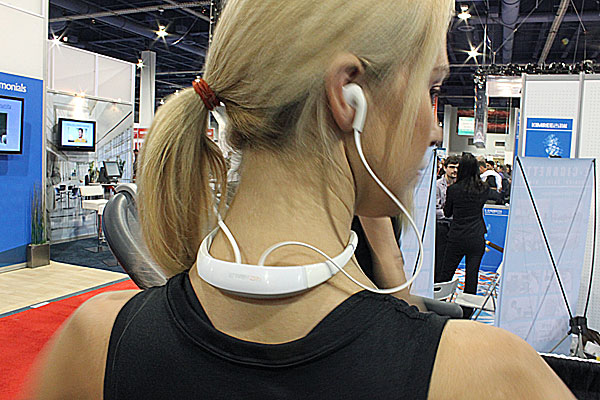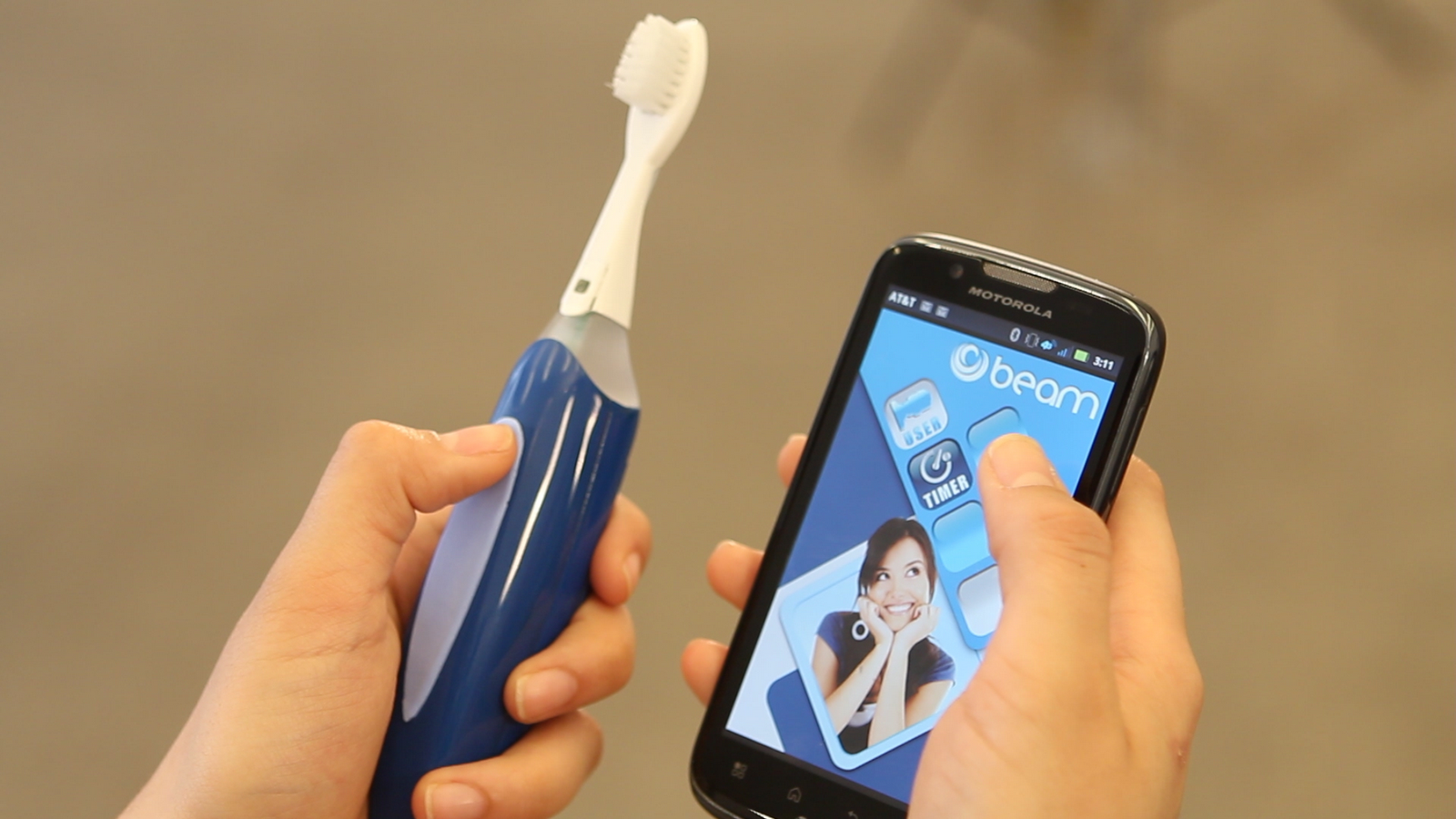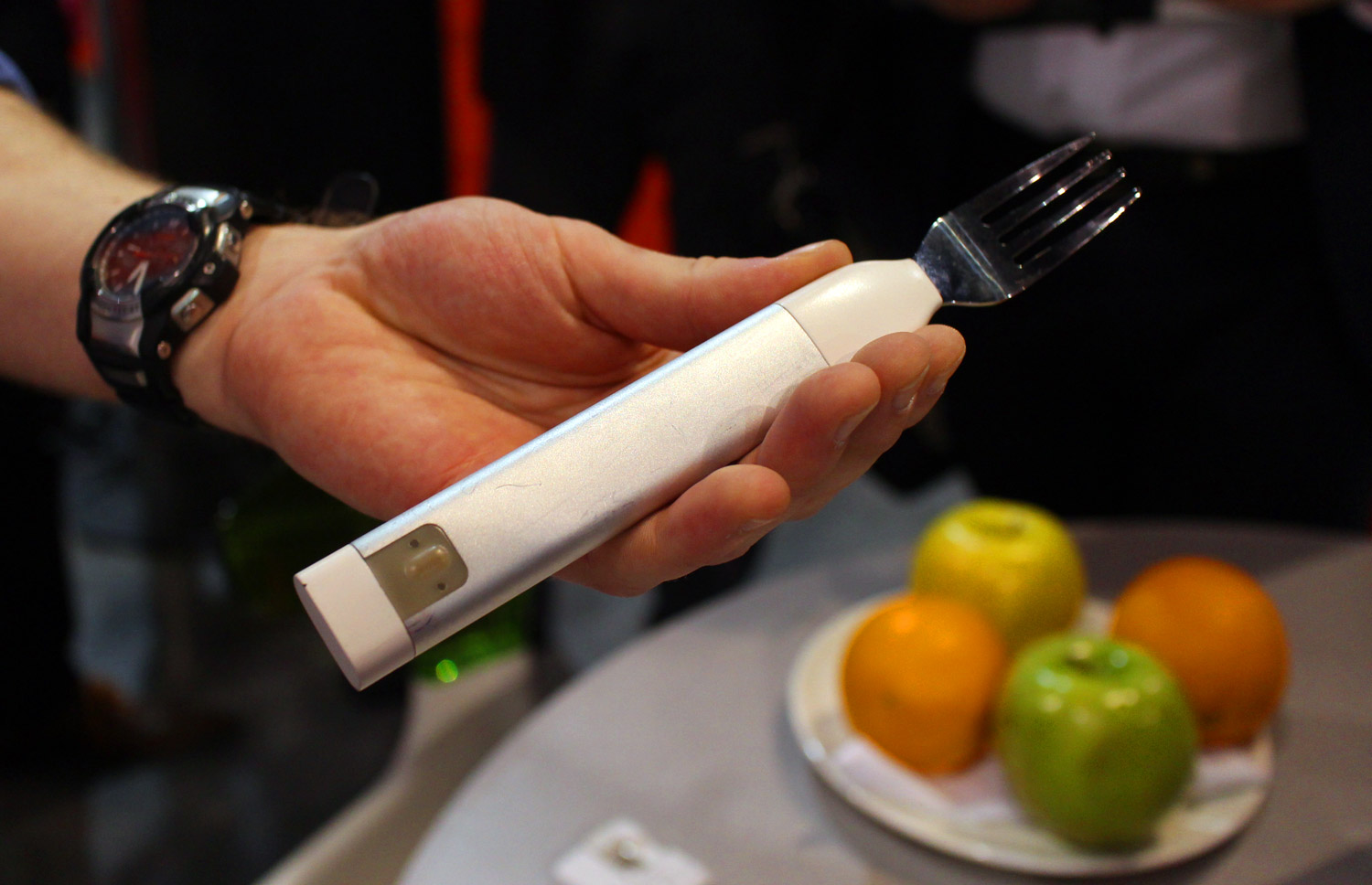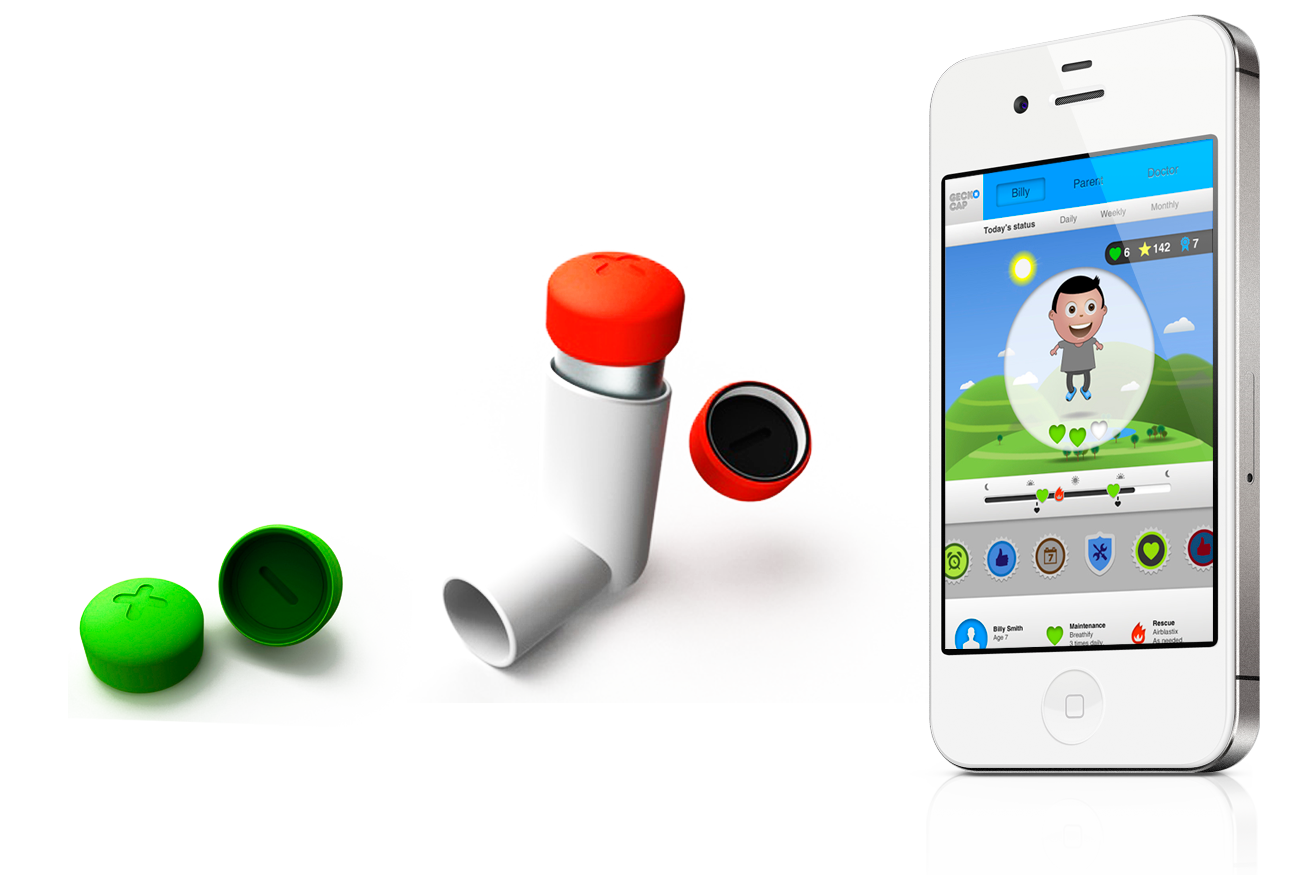CES 2013 Report from Medgadget Editor Scott Jung
At CES last week, Fitbit, Withings, Fitbug, BodyMedia, Basis, and FitLinxx were just a few of the companies that announced devices or new versions of current devices that count your steps, calories burned, and other fitness data. Fitbit’s new One fitness tracker won a CES Innovations award and the Misfit Shine was a runner-up in an exciting “Last Gadget Standing” competition. But there were also a number of gadgets outside the realm of activity tracking, that I saw, that can provide useful data about your body and your habits. Here’s a list of five of my favorites in no particular order:
Interaxon’s Muse Headband From Ontario, Canada based Interaxon, Muse is a brainwave-sensing headband designed to help you improve your mental and emotional health. It accomplishes this with four sensors in the headband that essentially use EEG technology. An app takes the raw EEG data and translates it into useful information. For example, it can measure your stress level and give you live feedback on how to lower it.
Valencell’s PerformTek Precision Biometrics Valencell’s PerformTek technology uses the ear’s unique physiology to gather vital health and fitness data by embedding sensors in a regular pair of earbuds. Some of the data that PerformTek sensors measure are heart rate, distance, speed, cadence, VO2 max (aerobic fitness level) and calories burned. This year at CES, Valencell showed off the iRiver ON, the first product with PerformTek technology.
BeamBrush Beam Brush is a manual toothbrush with special sensors in the handle that help you (or your kids) monitor your oral health habits. It syncs with an app that features a brushing timer, a brush head replacement alert, support for multiple Beam Brushes, and of course, goals and achievements. Beam Technologies is also a current member of Rock Health’s incubator program!
HAPILABS’ HAPIfork HAPIfork may look like your standard dining utensil, except is has a special capacitive sensor in its handle. HAPIfork forces you to eat at a certain pace; if you eat too fast, the fork will vibrate and an LED on the handle will flash. All this information is stored in the handle, which can be uploaded via USB to HAPILAB’s online dashboard where you can track your eating habits. Why? According to some studies, eating too fast can promote weight gain, digestive problems, and GERD.
GeckoCap Asthma is never fun to have, but the brightly-colored GeckoCap hopes to improve asthma adherence among kids. It has a sensor built in that tracks when a child uses his or her inhaler, and uploads the information to an online portal. It uses low energy Bluetooth, so there’s no pairing involved, so parents, school nurses, and athletic coaches can all help keep a child’s airways clear with their smartphones.




